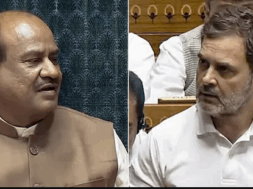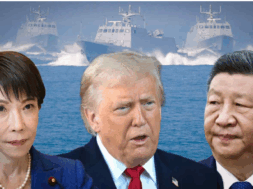
Roving Periscope: Uninvited and peeved, China spews venom against G7
Virendra Pandit
New Delhi: Grapes are sour. China is peeved at not being invited to the Group of Seven (G7) advanced and democratic economies, despite being the second-largest in the world, while its bitter foe India has repeatedly been invited.
That’s why, responding to the G7 Leaders’ Communique, after their just-concluded Summit in Italy, China claimed the bloc doesn’t represent the world. And that the G7 is a “political tool” for the US and Western diplomacy. It also accused them of using China-related issues as a pretext to vilify and attack Beijing.
Asked for China’s comment on the G7 Leaders’ Communique, in Beijing, Foreign Ministry spokesperson Lin Jian denounced the G7’s statements as baseless and biased, reflecting what China views as a continued effort to perpetuate US and Western dominance in global affairs.
“The G7 Leaders’ Communique again used China-related issues to vilify and attack China, resorting to the same old false accusations that have no factual, legal or moral basis and are filled with arrogance, bias, and falsehood,” he said.
China also criticized the G7’s composition and relevance in today’s global context. “The G7 does not represent the world. The seven countries only account for 10 percent of the world’s population; even combined, they contribute less than China to global economic growth,” Lin asserted, highlighting what Beijing perceives as a declining influence of the group, the media reported.
According to him, the G7 has “long strayed from its original purpose of coordinating for stability in the global economic environment, and has increasingly become a political tool to perpetuate US and Western supremacy.”
“It puts its own rules and decisions above the purposes and principles of the UN Charter and the international law, and has lost its ability to represent the world and credibility among the international community,” he maintained.
About the G7’s stance on global peace and security, Lin Jian accused the bloc of exacerbating tensions through military maneuvers and regional interventions.
“While claiming to safeguard world peace, the G7 keeps drawing lines along differences in ideology and values, forming exclusive groupings and inciting bloc confrontation,” Jian criticized, asserting that such actions undermine the international order.
China also condemned the G7’s allegations of “Chinese overcapacity” as unjustified and motivated by protectionism. “The G7’s ‘Chinese overcapacity’ allegation is unsupported by facts or the laws of economy. It is just an excuse for protectionism,” he emphasized, pointing out the detrimental impact on global economic cooperation and climate initiatives.
The G7 Summit leaders, after their four-day Summit in Italy, reaffirmed their dedication to a free and open Indo-Pacific Region governed by international law, which irritated China as it is trying to expand its influence in this region.
“We reiterate our commitment to a free and open Indo-Pacific, based on the rule of law, which is inclusive, prosperous, and secure, grounded on sovereignty, territorial integrity, peaceful resolution of disputes, fundamental freedoms, and human rights,” the White House said in a statement on Friday last week.
The Summit statement stressed that the G7 was not trying to harm China or thwart its economic development but would continue to take actions to protect the businesses from unfair practices, to level the playing field, and to remedy ongoing harm.
“We seek constructive and stable relations with China and recognize the importance of direct and candid engagement to express concerns and manage differences. We act in our national interest. Given China’s role in the international community, cooperation is necessary to address global challenges, and we continue to engage in areas of common interest,” the statement said.
“We call on China to step up efforts to promote international peace and security, and to work with us to tackle the climate, biodiversity, and pollution crises, combat illicit synthetic drug trafficking, ensure global macroeconomic stability, support global health security, and address vulnerable countries’ debt sustainability and financing needs,” the statement added.
The Summit had participation from the seven member countries—the US, UK, Canada, Germany, Italy, Japan, and France—as well as the European Union. Italian Prime Minister Giorgia Meloni had also invited India as an “Outreach Country” at the G7 Summit held in Italy’s Apulia from June 13-15.
Prime Minister Narendra Modi addressed the G7 Outreach Session on AI and Energy, Africa, and the Mediterranean, touching upon various subjects, including the transformative role of technology in human progress.
The Group of Seven was formed in 1975 when, amid the first oil shock and subsequent financial crisis, the Heads of State and Governments of the six leading industrialized countries met to discuss the global economy. They were joined in 1976 by Canada and in 1998 by Russia.
While China was never invited into the G7 the way Russia once was — Moscow joined the group in 1997 and was suspended when it annexed Crimea in 2014 — Beijing was often described as a “partner,” a supplier, and, above all, a key customer of Western products.
Later, however, China became the largest manufacturing hub in the world.













